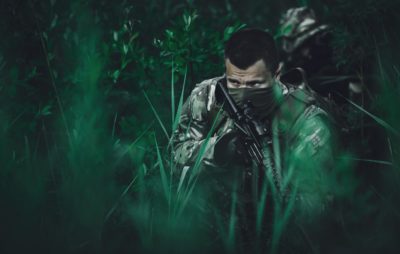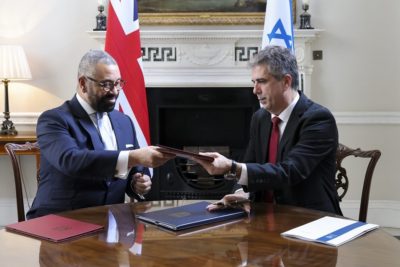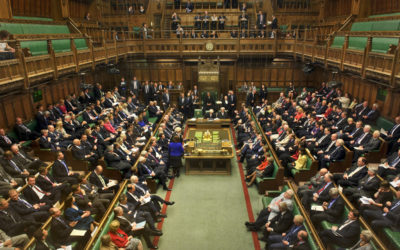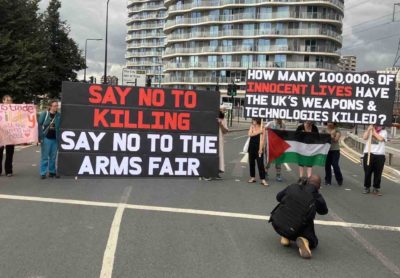Britain’s dystopian (and less accountable) military future

At the end of November 2021, the UK’s Ministry of Defence released Future Soldier: Transforming the British Army. The document is the culmination of a series of announcements and reforms emanating from the department during the pandemic, and critical analysis of these developments suggests they could be a recipe for a more violent and militarised future. A future in which the armed forces become less accountable and further entangled in matters for which there is no military solution.
Rangers
Future Soldier finally saw the announcement of the army’s new “Ranger Regiment”, adding to fears that hundreds of previously moderately accountable troops could be subsumed under the opaque “special forces” umbrella. Whilst there has been talk of the regiment since the release of the Government’s Command Paper in March 2021, it is Future Soldier that marks its arrival. Their categorisation as special forces would likely mean the new units are impervious to freedom of information requests and that parliamentary questions will be met with the archaic “no comment” convention that covers all special forces.
The lack of transparency is exampled in a 2018 report on secret warfare by the Oxford Research Group’s now-closed Remote Warfare Programme:
‘Currently, UKSF are the only part of the British defence and intelligence community that are not subject to parliamentary scrutiny of any kind. Instead, the government has adopted a “no comment” policy which prevents public discussion about their role in UK defence and security strategy. Transparency and accountability are important to increase public trust in British actions abroad. However, external oversight also plays an important part in making sure that government decisions are strategic as well as publicly defensible. The current opacity policy towards UKSF is unsustainable in a modern climate of parliamentary scrutiny over the use of force, and in an information age that has eroded government control over access to information.’
To understand how this works in practice we can look to a 2015 exchange between the DUP’s Jim Shannon and then-defence minister Penny Mordaunt on special forces activity. Shannon tabled a written question on steps taken to prevent the deaths of SAS personnel during training. Even a seemingly innocuous request (Shannon had not asked for information on operations) from a pro-military MP was met with an evasive stock answer:
‘In line with long-held Government policy, we do not comment on matters to do with UK Special Forces personnel.’
A part of the Royal Marines also seems to have been remodelled along these lines as part of the navy’s new Littoral Response Group. These units will see several hundred personnel attached, in the main, to Royal Navy ships.
Importance of Transparency and Accountability
The matter of transparency and accountability is pressing. An article in The Times heralding the new Ranger units suggests that the regiment’s four battalions will be in action – or at least deployed – very soon (once the initial testing and selection is completed):
‘Two of the four battalions in the 1,200-strong Ranger regiment will be sent to Africa, the third will focus on emerging conflicts in eastern Europe and the fourth will be deployed to the Middle East.’
The regiment’s commander, Brigadier Gus Fair, told the paper that soldiers would ‘be sent to countries that were unstable and facing threats from violent extremist organisations’. Though the question of which countries and what organisations remains unclear, British forces are currently deployed in Mali as part of a UN peacekeeping mission and, in 2020, the Express newspaper reported that UK Special Forces were operating in the country. Troops have also been deployed across the Sahel-region since June 2018 as part of France’s Operation Barkhane. Elsewhere on the continent, Operation TANGHAM has seen the British Army training Somali security forces, and the UK has a presence, to varying degrees, in six other African countries.
Militarising the Union?
Over £8bn has been allocated to the army alone for the structural changes envisaged by the Future Soldier programme – of which the Ranger Regiment is one major feature. Interestingly, the MOD’s explainer document for Future Soldier also seems to suggest the subsequent dispersal of military assets within Britain will have a political character shaped around the (increasingly fraught) state of the Union:
‘The proportion of the Army based in Wales, Scotland and Northern Ireland will be sustained or increased, bringing prosperity benefit across the Union.’
Whilst not explicit, this rebalancing of bases across the UK should be seen as part of wider attempts by the Government to fend off calls for greater independence in Scotland and Northern Ireland post-Brexit.
Border Forces
Elsewhere, the press has carried reports that UK troops are being used to intervene against refugee flows – both in central Europe and close to home on the coast of France. In the first case, Royal Engineers already based in Europe have been put to work shoring up fences on the Poland-Belarus border. Defence Secretary Ben Wallace told reporters:
‘What we will do is send some Royal Engineers – that is part of the Army designed for building or making fences or roads or putting in infrastructure.’
He added:
‘We are going to be using that part of our forces to help the Poles and potentially other Baltic states to secure their border.’
It should be assumed that any British support will aid the construction of Poland’s proposed 353 million Euro border wall. Work on the 5.5-metre-high wall is due to start before the end of 2021 and, once completed, it will be fitted with motion sensors and night-vision cameras. Whilst the British army engineers stationed there are technically subject to parliamentary oversight in the UK, the Polish government has imposed a state of emergency locally – effectively banning journalists and aid workers from the border regions.
With Foreign Secretary Liz Truss leading December’s G7 condemnation of Russian troop build-ups on the Ukrainian border, it also seems support for Poland is about more than immigration. Indeed, Ben Wallace had already sent army reconnaissance teams to Poland and Lithuania in response to what NATO countries claim is the weaponisation of migration by Russia’s ally Belarus.
Perhaps more ominously, press reports at the end of November suggested that the Special Reconnaissance Regiment (SRR) – a surveillance-oriented derivative of the SAS – could be deployed undercover in Calais disguised as migrants. Their role: to tackle the people smuggling operations bringing refugees across the Channel. A detailed Daily Mail article offers scant evidence of an actual deployment and claims that any such use of SRR troops would be in conjunction with French authorities.
With any potential operation lying outside public scrutiny, these announcements could have a chilling effect on activists and charities working with migrants in northern France. We only have to look at other EU countries to find examples. Italian authorities used an undercover police officer to build a false case against German NGO Jugend Rettet in 2017, claiming the organisation was aiding traffickers in the Mediterranean.
Foreshadowing
These examples of the militarisation of borders and immigration forewarn the dangers of the military’s interest in the security outcomes of climate change and its determination to take a leadership role in policy responses. The knock-on impact of these responses is that militarising borders becomes entangled, in the case of Poland, with the MoD’s approach to so-called “Grey Zone” activities by Russia.
Whilst it is hard to know what forms future military intervention will take, the folding of more units under a banner of secrecy cannot bode well. The fact they are already earmarked for deployments in Africa, the Middle East and Europe suggest the Ranger regiments will be put to use relatively soon. That this is likely to be done with barriers to press and democratic scrutiny already in place should be a concern to everyone with an interest in accountability and transparency.
See more: human rights, legislation & policy, security, border militarisation, militarisation, special forces
Like what you read?
> Sign up for our newsletter or blog notifications
> Support our work – from just £2 a month










